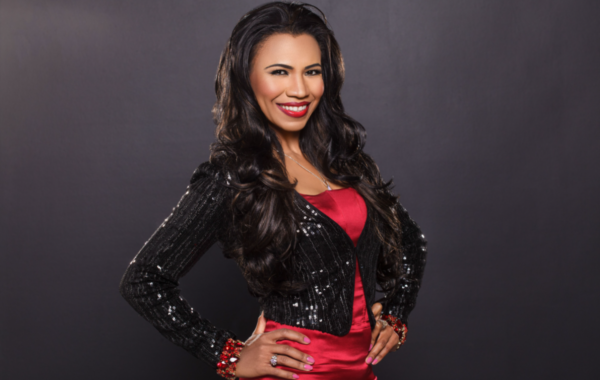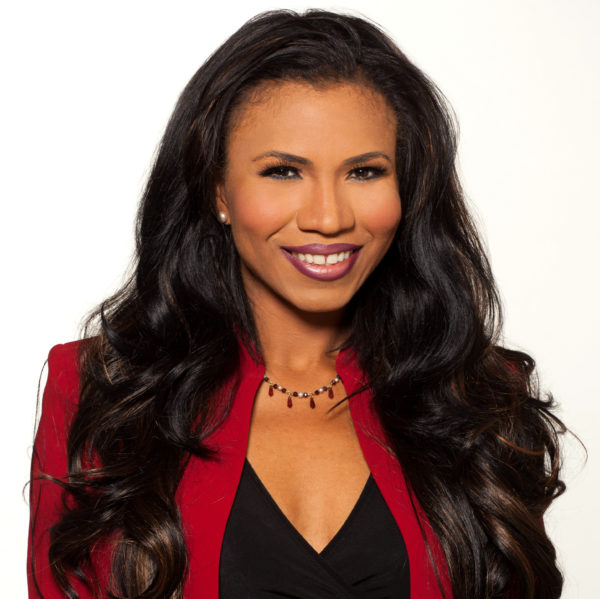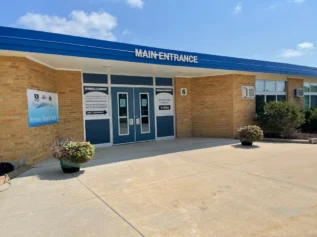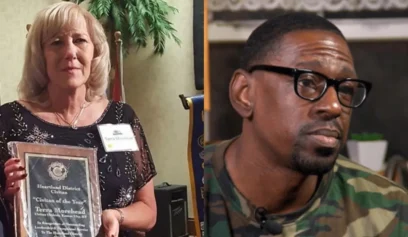Olympia LePoint’s story is one of resilience and triumph. Born in South Los Angeles as one of several children raised by a single mother, the 44-year-old has made a formidable impression on the STEM world.
Once awarded the “Boeing Professional Excellence Award,” LePoint has helped design and launch 28 NASA space shuttles between 1998 and 2007.

In 1998 at the age of 21, LePoint accepted a job at Boeing, which directly supports NASA, and worked as a reliability engineer for about 10 years. Her job included using mathematics to determine the likelihood of catastrophic explosions during flight to help people understand the risk of space flight, building rockets, and designing engine technology.
LePoint’s signature authorized space shuttle main engine tests, and she helped contain engine explosions to make launches safe for astronauts.
Even with her accolades, as a Black woman in propulsion science, LePoint is familiar with the experience of feeling out of place.
While working on a NASA mission, LePoint was a part of a team of experts tasked with reviewing launch data informally called “graybeards.”
“Now, the reason why it was called graybeards at the time is that only people who had an extreme amount of knowledge and expertise were invited to this meeting. … People who were typically invited to this meeting were men who had gray beards,” LePoint said, laughing.
When LePoint, in her 20s at the time, entered the room, everyone turned to look at her. “I remember everyone turning and they were looking at me like ‘what is she doing here?’ And then they found out I was there as one of the experts to help provide insight.”
But LePoint’s journey to such a meeting was not without its obstacles. She grew up in poverty in a neighborhood fraught with gang violence. “Every type of challenge that you can imagine was thrown my way,” said LePoint, who dreamed of a career in propulsion science since childhood.
At the age of 10, LePoint was slashed in the face by a gang member. “Instead of me looking at myself as a victim, which is easy to do, I knew that that was a lie,” she said.
LePoint went on to graduate in 1998 with a bachelor’s degree in mathematics and science from California State University, Northridge in the top five of her graduating class before obtaining a master’s in applied mathematics several years later.

As the U.S. continues to rank low in math and science education among industrialized countries, LePoint has set out to inspire the next generations of global problem-solvers using STEM.
“When I made the decision to major in mathematics, it was 1993 at that time, the statistics were that one out of 31,000 African American women would earn a Ph.D. in the natural sciences…I was just completely shocked by that statistic.” As a Black woman embarking on such an endeavor, “I had a better chance of being hit by lightning twice,” LePoint told Atlanta Black Star.
“I thought to myself, I’m going to be that one and I’m going to show other women of color how to be No. 2, 3, 4, 5, and a thousand.”
On the value and importance of Black women in STEM, LePoint said, “We offer new insight and a holistic type of thinking and problem-solving … that no other group of people bring.”
Data released in 2013 by the National Science Foundation showed that Black women held just 2 percent of jobs in the science and engineering fields.
One of the major barriers for Blacks pursuing careers in STEM is a lack of proficiency in mathematics, LePoint noted. Her book “Mathaphobia,” published in 2013 after LePoint herself struggled with math as a young student, is intended to encourage students and help individuals overcome their fear of math and improve problem-solving abilities to gain access to math-related fields.
A misconception about propulsion science is that engineering is the only educational path toward pursuing the career, LePoint said. “That’s not the case. You can be a mathematician, you can be a physicist, you can be a chemist, or a person understands thermodynamics or structural dynamics. There’s different ways that scientists contribute to being a rocket scientist. You can be a computer programmer and be a rocket scientist.”
LePoint started OL Consulting Corporation in 2010 and has offered online math classes to help students succeed and study from home during the pandemic.
LePoint’s next big project is getting an educational science show onto a major television network. “We have pitched a major network for the consideration to have a science show on network TV. … We’re currently accepting offers to host, produce and create TV shows with a team of great people.”
In offering advice to the next generation of scientists and mathematicians, LePoint suggests aspiring leaders in the field take a look at what she described as her favorite project: her Answers Unleashed book series. “Mathaphobia” is the first book in the series, followed by “Answers Unleashed: The Science of Unleashing Your Brain’s Power,” and “Answers Unleashed II: The Science of Attracting What You Want.”
“My true joy has been writing books to help people overcome their own fears so they can go into the science, technology, engineering and mathematics fields, or become leaders in their everyday life,” LePoint explained. “I am a firm believer that we each have a beautiful future in front of us, and we get a chance to achieve it through our decisions.”


